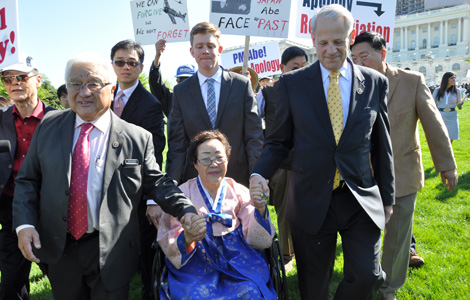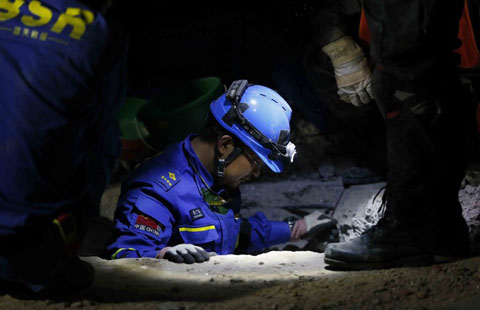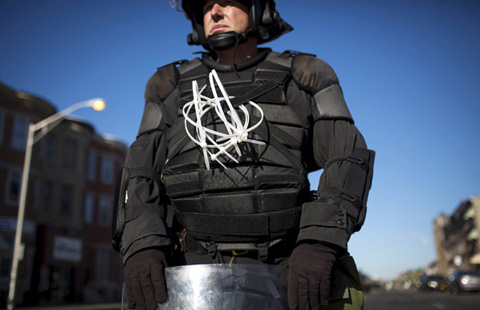Misreadings and misjudgments
Updated: 2015-04-30 07:44
(China Daily)
|
|||||||||
 |
|
Chinese President Xi Jinping, left, meets with his US counterpart Barack Obama on the sidelines of the Nuclear Security Summit in The Hague on March 24, 2014. [Photo/Agencies] |
Recently, some US scholars have once again suggested China's collapse, a pessimistic outlook on China that has been raised from time to time by Western academics or the media.
The forecast of China's collapse, which has alternated with a China threat and China's disregard for rules, is a result of their misunderstanding of the country.
China studies in the United States are focused on its politics and negative aspects of the country, including its social contradictions, human rights, ethnic conflicts, mass incidents, as well as issues related to China's Tibet and Xinjiang Uygur autonomous regions. It is easier for such research topics, which exaggerate China's "dark side" and draw gloomy conclusions, to gain subsidies from the government.
The haunting Cold War mentality has also caused some US scholars to focus on negative issues in China and other countries not viewed as a part of the Western camp to create a pretext for possible diplomatic interventions and military spendings. In the era of economic globalization and power multi-polarization, such an academic preference is incompatible with the fundamental requirement that academic studies should present an objective picture so that governments can base their foreign policies on correct judgments.
Misjudgments about China's development among some US researchers have also contributed to their misperceptions. In fact, the US' misjudgments about China over the past decades, from its misjudgment about the founding of New China to its misjudgment about China's reform and opening-up, have caused many US scholars to study China not from the perspectives of its concrete national conditions, system and development path, but from the perspective of the US' own political standards.
Chinese people have a long-cherished belief that "among three people, there must be one who can be my teacher". China's academic studies on other countries thus focus on what China can learn from them. US scholars could learn from China's academic approach.
The above is an abridgement of a People's Daily article published on Wednesday.
- Tourists swarm Mount Taishan even before holiday
- Hospitals checked for possible bribes, kickbacks, misconduct
- 2,000 Chinese tourists return from Nepal
- Watchdog says Sinopec chief faces investigation
- Red Cross Society of China delivers relief supplies to Nepal
- 4,000 Chinese stranded in quake-hit Nepal

 'Comfort women' survivor attends protest of Jpapan PM
'Comfort women' survivor attends protest of Jpapan PM
 Ten photos you don't wanna miss – April 29
Ten photos you don't wanna miss – April 29
 China's rescue team searches for survivors in Nepal
China's rescue team searches for survivors in Nepal
 Police descend on Baltimore to enforce curfew after riots
Police descend on Baltimore to enforce curfew after riots
 Top 10 Chinese cities with innovative flair
Top 10 Chinese cities with innovative flair
 Tourists swarm Mount Taishan even before holiday
Tourists swarm Mount Taishan even before holiday
 Man pulled alive from rubble 82 hours after quake
Man pulled alive from rubble 82 hours after quake
 Baltimore erupts in riots after funeral of man who died in police custody
Baltimore erupts in riots after funeral of man who died in police custody
Most Viewed
Editor's Picks

|

|

|

|

|

|
Today's Top News
US rapped for stance on Japan
Obama, Abe talk much about China
Japan PM protested at US Capitol, San Francisco
Chinese students caught in riot scene
China hits out as Abe visits the US
Riot-hit Baltimore, an American city divided by income and opportunity
Record shattered as Furious 7 sets hot pace
'Rent-a-Foreigner' business by China's real estate developers
US Weekly

|

|







